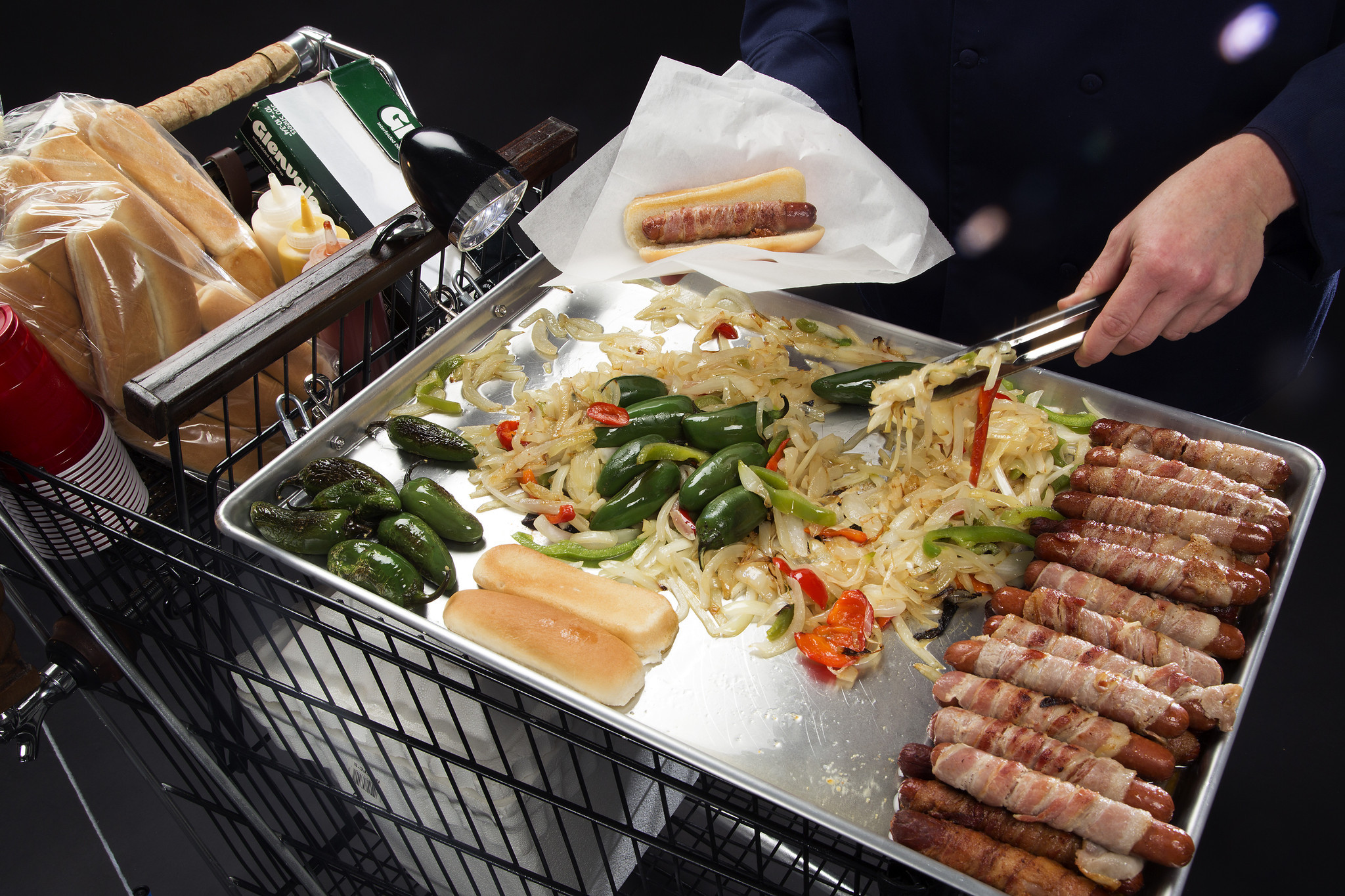L.A. City Council Member Hugo Soto-Martínez and Council President Paul Krekorian introduced a motion at the City Council meeting two weeks ago that would remove the no-vending zone on Hollywood Boulevard that has been in place for the past five years.
Since the decriminalization of street vending in 2018, the Los Angeles City Council established a group of eight no-vending zones that included popular areas like the Crypto.com Arena, Dodger Stadium, and the Hollywood Walk of Fame, where it was determined that street vending would still be illegal.
Street vendors who frequently sell in those areas have continued to fight this decision for years, attempting to make these popular L.A. streets open to street vending.
Last December, street vendors, along with community groups, filed a lawsuit against the City of L.A. for upholding these unlawful and discriminatory “no-vending” zones. The lawsuit alleges that the anti-vending zones violate SB 946, a 2018 state law that essentially legalized street vending.
Although the lawsuit is still ongoing, it inspired council members like Soto-Martínez, who has long advocated for street vendors in his district, to pursue this newly introduced motion.
“As the son of street vendors, I’ve seen firsthand how street vendors are the ultimate entrepreneurs, contributing so much cultural vibrancy to Los Angeles,” said Councilmember Hugo Soto-Martínez. “The no-vending zone on Hollywood Boulevard targets immigrant street vendors who work so hard to provide for their families. These are the exact people we should be trying to support.”
If the motion passes, Soto-Martínez said, in a press release, that street vendors themselves and community organizations will be able to collaborate with the city on a first-of-its-kind "special vending zone" on Hollywood Boulevard, which would then inform a citywide framework for improving the city's street vending policies.
“Street vendors, sensibly regulated, can play a vital role in the life of a vibrant commercial district,” said L.A. City Council President Paul Krekorian. “Working with local business owners, stakeholders, and the vendors themselves, we can create a street vending plan for Hollywood Boulevard that honors and enriches this historic destination for visitors to our city, while providing a model for the rest of the City to follow.”
Street vendors and advocates, although thrilled to hear about the new motion, feel like it still falls short. Katie McKeon, one of the lawyers with Public Counsel who helped file the lawsuit against the City of L.A., said the motion is missing key components.
“We fully support the motion. We like that it suggests that there will be a collaborative process with sidewalk vendors, business owners, and community advocates to come up with some new rules that will govern sidewalk vending areas,” she tells L.A. TACO. “But we still have concerns, mainly that there is nothing in that motion that addresses the harm that has already been done to vendors in the 'no-vending zones,' the biggest thing being that vendors have tens of citations that are outstanding, and so we need those citations to be rescinded.”
Citations that have proven to cause street vendors, some of whom are often low-income, to further fall into debt. Especially street vendors who vend in no vending zones, zones that are almost regularly inspected or visited by code-enforcement officers.
McKeon said vendors like those on Hollywood Boulevard are missing out on thousands in profits over these losses, which come from piled-up citations that run anywhere from $100 to $500 per citation and penalties such as having their equipment taken away and their food tossed. All of it becomes a financial burden for these micro-entrepreneurs, she said.
Soto-Martínez responded to the possibility of including the removal of citations for vendors in Hollywood Boulevard, telling us:
“Unfortunately at this moment, it does not include the horrible effects that the 'no-street vending' zones have had on vendors and of course, I know that folks are being cited, not just here, but across the city and getting multiple fines,” Soto-Martínez said to L.A. TACO. “It’s a horrible thing and that's why the city was sued, so that’s more towards the lawsuit and that will play out in the courts, but the motion is about trying to create a more forward-looking approach to these issues.”
Although the motion for may fall short for some, if passed it would become the first-of-its-kind initiative that is said to act as a pilot project for “Special Vending Zones” across Los Angeles. The motion would immediately impact around 50 street vendors that operate along the 1.3 miles long Hollywood Boulevard.
Soto-Martínez is currently not sure how much time the process will take to implement the pilot program.
“I wish we could move things along faster but it takes time," he said. "We’re being cautious about how this will look, so we’ve given ourselves a very public goal to have the program running in 18 to 24 months, once the motion has been approved.”
The motion will be heard next in the Civil Rights and Public Works Committees before coming to the full City Council for a vote. Councilmember Soto-Martínez did have one message for the street vendor community in Los Angeles and those who support them.
“Sigan luchando, continue fighting, the laws are reflective of the people who engage in the process, and due to their advocacy and tenacious and unrelenting engagement, the narrative has changed because of them,” said Soto-Martínez. “Now it’s a question of taking their life experiences and putting them into law so that their life experiences and expectations of the city are reflected in the law.”







